|
The chaos on the southern U.S. border will likely have an impact on Canada’s border as well. Today in The Conversation Canada, Alejandro Hernandez from Carleton University says Canada must come up with its own migration management plans to help Central Americans who are escaping the horrific conditions of their home countries.
Isaac Nahon-Serfaty of the University of Ottawa tells us about another country in chaos – Venezuela – which is “on a path towards environmental devastation.” But he wonders why global environmentalists aren’t raising concerns about Venezuela the way that other countries are targeted.
Regardless of your profession, going “digital” has become a necessity. Or has it? Markus Giesler of York University examines his own world and concludes “the challenge in becoming a digital professor is not finding an audience of interested readers. The real challenge is withstanding the temptation of letting neoliberal agendas compromise your scholarship’s rigour, complexity and criticism.”
And finally…we continue to celebrate our first anniversary by looking back at some of our most impactful stories over the last year, as chosen by our editors. Today, we revisit some great Science and Technology articles.
Regards,
|
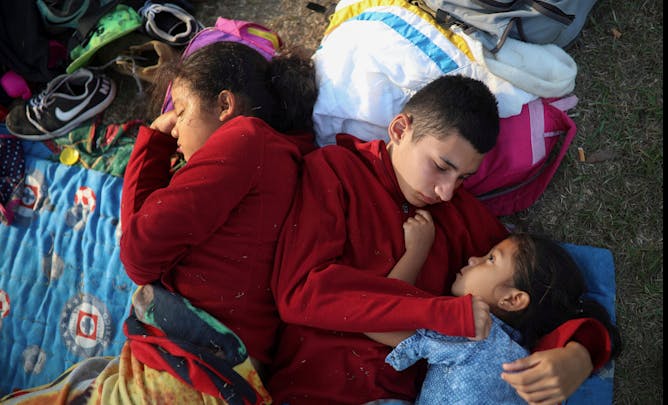
In this April 2018 photo, siblings from El Salvador huddle together on a soccer field in Mexico.
awaiting temporary transit visas that would allow them to continue to the U.S. border, where they hoped to request asylum.
(AP Photo/Felix Marquez)
Alejandro Hernandez, Carleton University
Immigration turmoil in the U.S. means Canada must craft its own migration management plans -- to help Central Americans fleeing misery in their homelands, some of it with Canadian involvement.
|
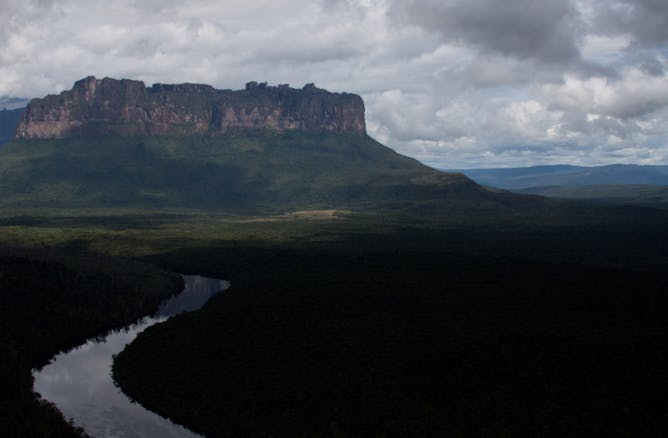
Aerial view of the Auyán Tepuy and the Caroni River in Venezuela.
(Luis Ovalles/Wikimedia)
Isaac Nahon-Serfaty, University of Ottawa
In 2016, Venezuela opened up a large swath of the country to mining in an effort to prop up its economy. Now it is paying the environmental price.
|
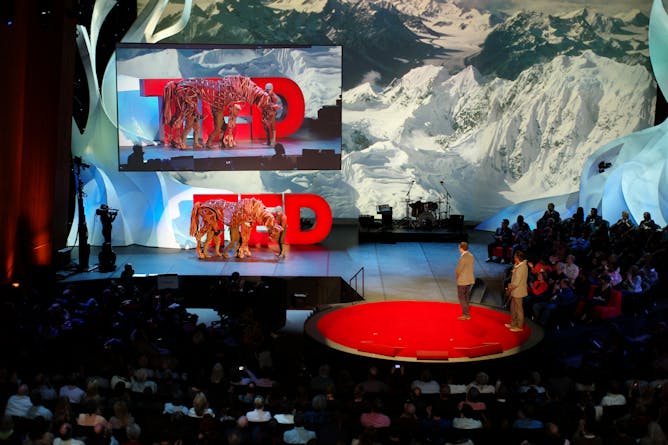
Giving a TED talk and/or tweeting are becoming expected parts of an up-and-coming digital professor’s job.
(William Saito)
Markus Giesler, York University, Canada
Young professors are challenged to engage in public outreach using digital technologies, without becoming mouthpieces for corporate elites.
|

Artist’s impression of Proxima b, a planet orbiting the star Proxima Centauri within the closest known star system outside of our solar system.
(ESO/M. Kornmesser)
Michael P. Oman-Reagan, Memorial University of Newfoundland
Using AI to search for ET might help us find things we couldn't even imagine we should look for, but to succeed we also have think critically about how we create and use that technology.
|
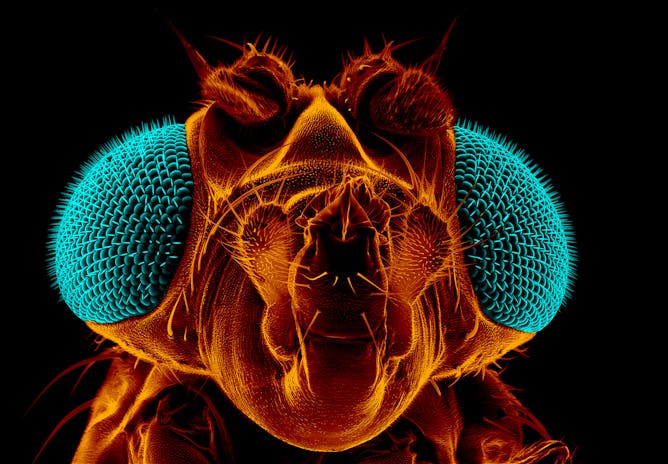
A scourge of kitchens everywhere, Drosophila melanogaster — the common fruit fly — stares down the electron microscope that captured its image.
(Shutterstock)
Thomas Merritt, Laurentian University
How do you rid your kitchen of pesky
fruit flies? A scientist who researches them explains.
|
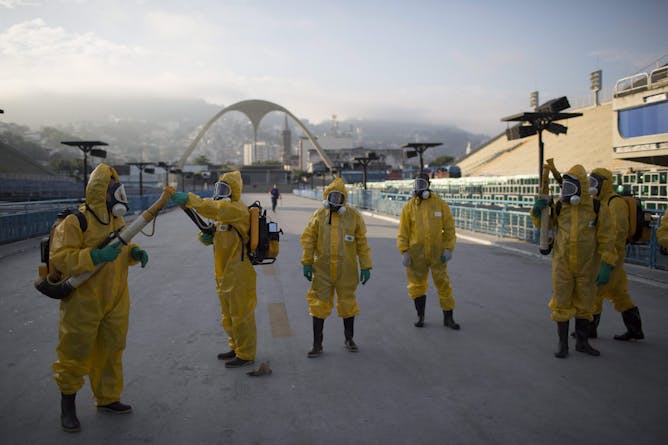
Health workers get ready to spray insecticide in advance of the 2016 Summer Olympics, in Rio de Janeiro, Brazil, to combat the mosquitoes that transmit the Zika virus in this Jan. 26, 2016 photo.
(AP Photo/Leo Correa, File)
Arinjay Banerjee, University of Saskatchewan; Karen Mossman; Vikram Misra, University of Saskatchewan
Recent discoveries of ancient viruses are helping scientists understand their origins.
|